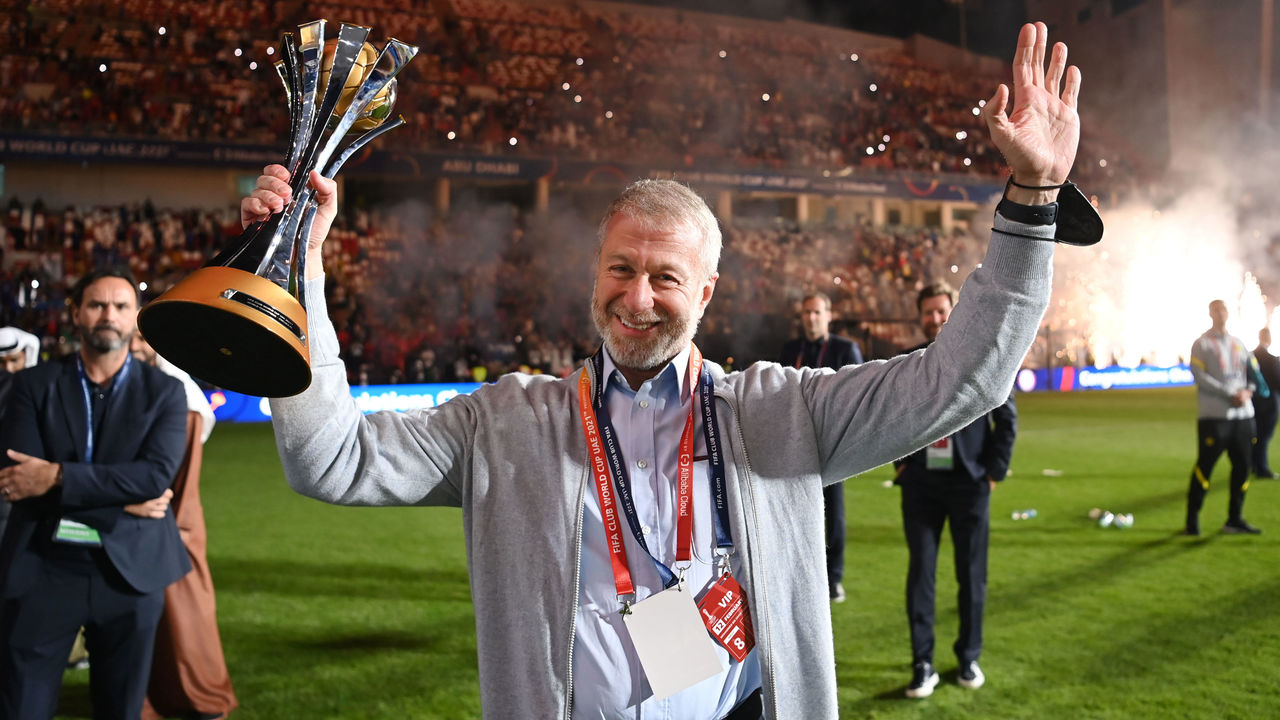Abramovich cedes 'stewardship' of Chelsea amid threat of sanctions
Roman Abramovich, the Russian oligarch who turned Chelsea into a global powerhouse, announced Saturday he’s surrendering control of the club to trustees of its charitable foundation, throwing into question the billionaire’s future as owner amid the growing threat of sanctions against him.
Abramovich faced calls to denounce Vladimir Putin after the Russian president ordered troops to invade Ukraine earlier this week. The 55-year-old has distanced himself from Putin and his regime.
British politician Chris Bryant on Thursday urged the U.K. government to freeze Abramovich’s assets, pointing to leaked documents from 2019 that suggested the Russian had links to “corrupt” activity.
“During my nearly 20-year ownership of Chelsea FC, I have always viewed my role as a custodian of the club whose job it is ensuring that we are as successful as we can be today, as well as build for the future while also playing a positive role in our communities,” Abramovich said in a statement.
“I have always taken decisions with the club’s best interest at heart. I remain committed to these values. That is why I am today giving trustees of Chelsea’s charitable foundation the stewardship and care of Chelsea FC.
“I believe that, currently, they are in the best position to look after the interests of the club, players, staff, and fans.”

Bloomberg reported Friday that several investors and private equity firms were preparing potential offers to buy Chelsea and were ready to swoop in if the U.K. decided to sanction Abramovich. The club has reportedly fielded one inquiry already.
British Prime Minister Boris Johnson raised the prospect of freezing the assets of more Russian oligarchs who work and trade in the U.K. when he announced the “largest and most severe package of economic sanctions that Russia has ever seen” on Thursday.
The extent of Abramovich’s relationship with Putin is unknown, but a British high court ruled in 2012 that the billionaire had “very good relations” with and “privileged access” to the Russian president.
Representatives for Russian opposition leader Alexei Navalny, who was poisoned in August 2020, claimed in January that Abramovich was one of several “key enablers” of Putin’s regime.
Putin and the Kremlin have denied involvement in Navalny’s poisoning, and Abramovich has denied Navalny’s claims.
Abramovich has kept a low profile since allowing his U.K. visa to expire in 2018 amid a diplomatic dispute between London and Moscow over the poisoning of former Russian spy Sergei Skripal and his daughter in southern England.
Abramovich returned to Stamford Bridge for the first time in three years in November after gaining Israeli citizenship. Holders of Israeli passports can stay in the U.K. without a visa for up to six months at a time but can’t work in the country.
Reuters reported in December that Abramovich had obtained Portuguese citizenship under a law that provides passports to descendants of Jewish people who fled the Iberian peninsula during the medieval Inquisition. Crucially, Abramovich had gained an EU passport, which made working in the U.K. easier.
Chelsea, who’ve won 21 titles since Abramovich bought the club for £140 million in 2003, will now fall into the care of the six trustees, including club chairman Bruce Buck, Chelsea Women manager Emma Hayes, and Piara Powar, executive director of anti-discrimination organization FARE.






Latest Comments